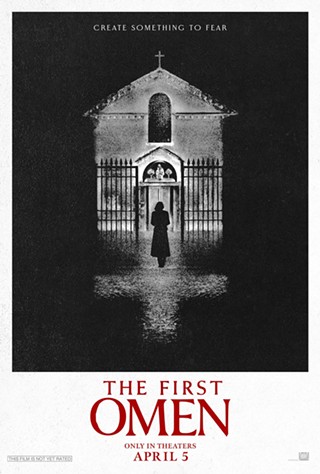The sequel of sorts to the original Shaft series of movies (Shaft, Shaft's Big Score, Shaft in Africa) stars Samuel L. Jackson as John Shaft, the nephew of the original Shaft (the ultra-cool Richard Roundtree, who reprises his role in the new film). Is Sam Jackson/Shaft the kind of man who will give pride to the lovemaking legacy of his uncle? Well, before the credits even start rolling, the screen is filled with the heartwarming and peaceful sight of two people in the throes of loving passion. Any audience seeing this is sure to be prepared for the kind of life-affirming experience that made watching the original Shaft movies so special.
But wait--after this scene, the credits roll, and thenäand thenäno more naked tenderness for the rest of the film!
That's right, the new Shaft is no gentle lover of women, but rather a ruthless killer. To signify the change, instead of starting out the film as a "private dick," he's now a member of the New York City police department, well known for its cautious use of extra bullets in taking down the kind of dangerous miscreants who would reach for their wallets, or walk alone at night, or be some off-white color.
What's going on here? Well, basically, the Make Love Not War '70s are over, brother, and our new national motto is "get tough on crime." This Shaft does with a vengeance, capping motherf*ckers like it ain't no thing.
Shaft starts the movie by investigating an assault outside a nightclub. It seems that rich, white racist Walter Wade (Christian Bale, whose awesome work in American Psycho and upcoming role as Darth Vader make him the official villain-actor of the 21st century) has just bludgeoned an innocent black man, and when Shaft arrests him he shows no remorse. For this, Shaft sees fit to break young Wade's nose.
It's hard to love rich, young, racist assailants, but still, do we need to go to the movies to watch the NYPD abuse suspects? Can't we just turn on the evening news to catch that sort of thing? If we prefer our police brutality on 35mm film with stereo-surround sound, Shaft is the movie to see.
Cut to two years later, when Shaft is shooting at suspects and making illegal arrests in his new job as goon for the narcotics squad. It seems that Wade had skipped town shortly after being arrested, when a corrupt judge allowed him to get away with minimal bail. Now, word comes in that Wade is coming back to New York, and that his nose has healed nicely. Of course, this will not do, so Shaft goes off to arrest him and see if there aren't other cartilaginous areas of his body that need reshaping.
Unfortunately, the only witness in the case against Wade, a timid waitress, has vanished, and Shaft must now spend the rest of the film shooting literally dozens of second-rate henchmen in order to find and protect the young witness.
Spelling the word "justice" in sticky red blood, Shaft sends lots and lots of young Latinos to their final reward so that he can arrest the evil white man for killing the innocent black man. It's a multi-racial bloodbath, symbolized by a malevolent black-and-white cop team who've signed up with the forces of evil in order to thwart Shaft in his mission to depopulate the city.
In spite of its neanderthalish politics, Shaft is a pretty entertaining film. The dialogue is often snappy, in an action-hero sort of way, as when wealthy scion Wade says to Shaft, "Do you know who my father is?" and Shaft replies, "No, do you?" The plotting, while overly reliant on the motif of heavily armed villains who can't shoot straight, is nonetheless a step above simplistic, and moves along quickly.
Still, to replace the funk-driven love scenes of the original Shaft with the staccato sounds of gunfire seems beyond sacrilege. Have we really come to the point where a massacre is more acceptable than a bit of gentle swordsmanship? In the '70s, violence in a film was almost always shocking, and when somebody was shot it seemed to matter. Perhaps this went hand in hand with the ridiculously naive notions that war was bad, communication was good, and killing was not always the best solution to absolutely every problem.
Shaft is playing at Century El Con (202-3343), Century Park (620-0750), DeAnza Drive-In (745-2240), and Foothills (742-6174) cinemas.










